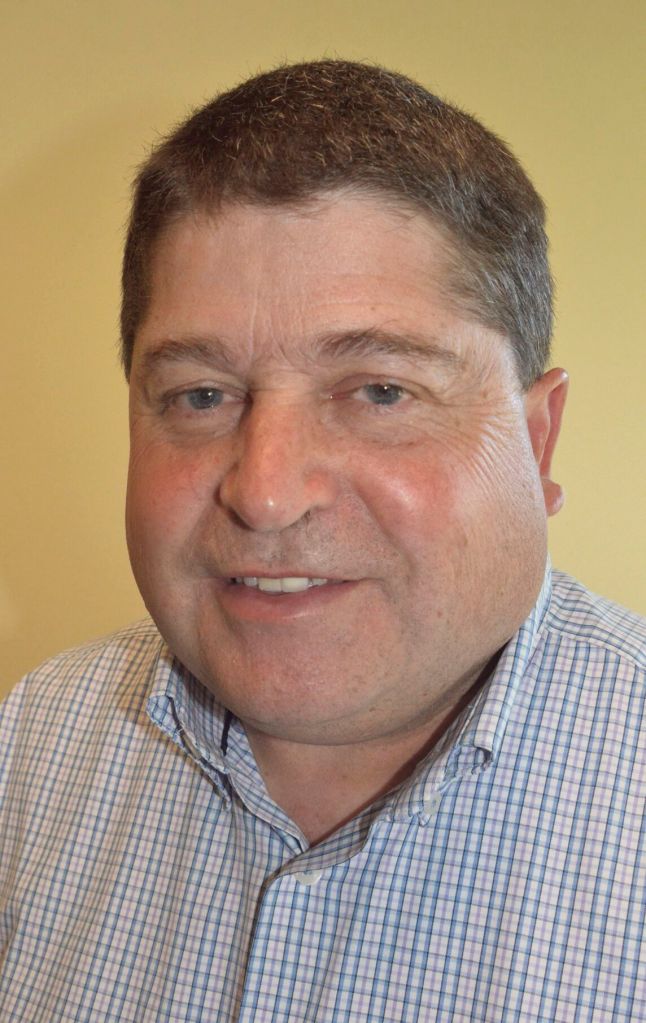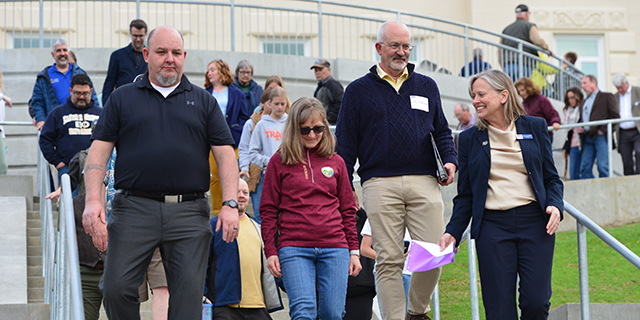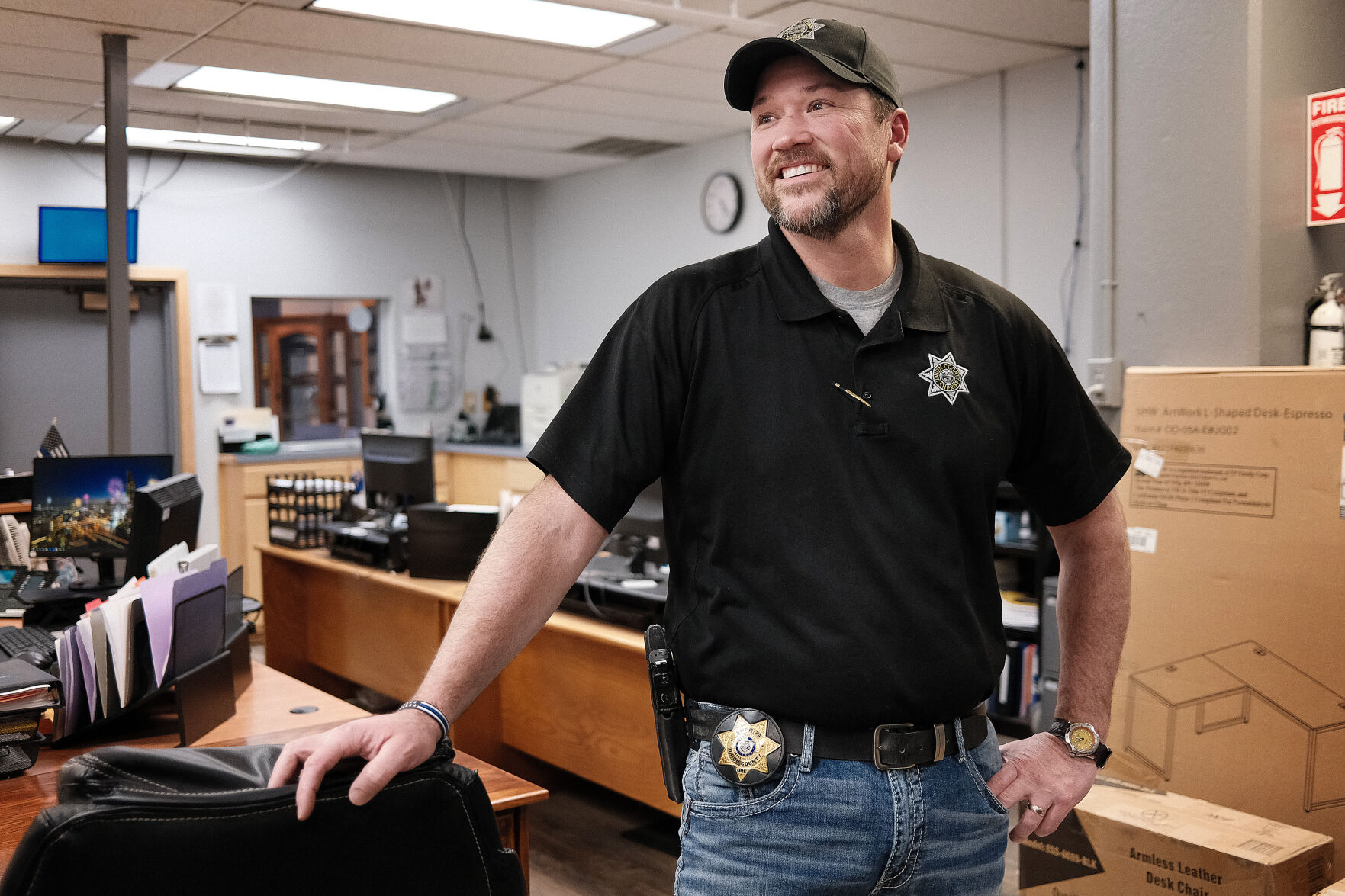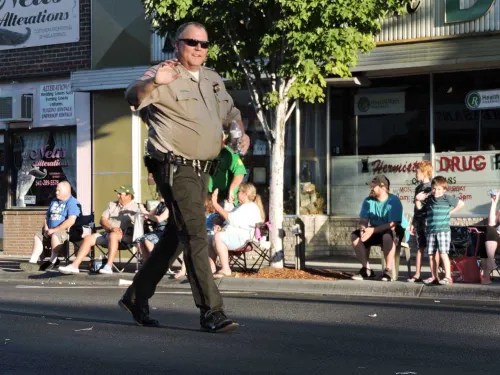New Wallowa Memorial Hospital CEO praises hospital as ‘super strong’
Published 7:00 pm Thursday, September 21, 2023

- Grigg
ENTERPRISE — As Dan Grigg settles into his new job as chief executive officer at Wallowa Memorial Hospital, he’s got a long to-do list: Meet the staff. Check out the county. Talk to the county’s Rotary Club.
But here’s one thing that’s not on his list: Make enormous changes right away.
“I don’t intend to make a lot of changes early on,” Grigg, 59, said. “Because this is a really good organization and is super strong and solid. And so I don’t have any intention of coming and just turning things upside down.”
Rather, he said, his priority is to work with the hospital’s leadership team and other staff members to try to find “where there are opportunities to build on what’s here, and continue to grow it.”
Grigg succeeds Larry Davy, who served as the hospital’s CEO for more than 15 years in two separate stints before retiring.
Grigg comes to the job with decades of experience in hospital systems large and small. His last two jobs have been as CEO of small hospitals in Burns and, before that, in Heppner.
But he also has experience working in larger Oregon hospitals, such as eight years at Salem Hospital. Much of his time in Salem focused on patient safety, but he also helped with developing some of the hospital’s clinics.
Before the Salem job, he worked for 14 years at a Fresno hospital owned by what is now called Trinity Health. After wrapping up a year-long fellowship, the hospital asked him to stay on as its quality director — a post, he said, that allowed him to work closely with doctors and nurses and others on the hospital’s clinical side.
Health care start
It was a bit of a fluke that Grigg started working in health care in the first place. As a student at Brigham Young University in Utah, he signed up for a day-long internship over Christmas break. He drew an assignment to a Salt Lake City hospital — and, at the end of the day, was asked if he wanted to stay on to work on a project. During the series of Friday sessions when he worked on the project, “I just really found that I liked health care and liked what they were doing and the mission.”
He started interviewing CEOs at hospitals in the Salt Lake City area, peppering them with questions: What do you do? What’s your day like? How is your career? After graduating from BYU, he went straight to Arizona State University to student hospital administration.
After spending more than two decades in larger hospitals, he took the CEO plunge in Heppner. Moving to a smaller hospital was an invigorating challenge, he said: “When you go to a small hospital, you find out that everybody does more than one job, really.”
And even though the Heppner position was his first job at a smaller hospital, the lessons he had learned over more than two decades in health care still applied: “I was able to really just take what I had learned and apply it to that setting.”
When he and his wife, Andrea, made the move to Burns, four of their seven children still were living at home. They decided to focus on getting their children all out of school and then taking a look around to assess their next step.
Shortly after their last child graduated from high school about a year ago, Nick Lunde, the chair of the Wallowa County Health District Board of Directors, started asking whether Grigg might be interested in Wallowa Memorial.
“Then he called me in April, and said, ‘You know, we’ve been recruiting for Larry’s replacement. Would you like to apply?’ And my wife and I talked about it and thought, ‘Yeah, who wouldn’t want to live there? It’s a gorgeous place.’ And, plus, I knew the reputation of the hospital.”
Now that he’s landed the job, Grigg knows Wallowa Memorial is facing the same challenges that confront hospitals of every size everywhere.
Adequate staffing is a big issue, he said, and the issue is compounded in rural areas. Still, not every health care provider wants to live in an urban setting, and Wallowa County itself could be part of the recruitment lure, he said.
And as health care costs increase, he said, rural hospitals in particular can be caught in a bind: There’s little appetite federally, he said, to increase the payments to programs such as Medicaid and Medicare. “And so the revenues are not increasing as much as the costs are increasing.”
In the short run, though, Grigg is “drinking out of the firehose.” There are people to meet, inside and outside the hospital. There’s a lot of information-gathering. There’s a lot of listening, to try to get a sense of what people’s priorities are.
He’s also aware that, any time a new leader settles in, it triggers a bit of anxiety among the workforce. He’s tried to ease some of that by sending out an email to the hospital’s workforce in which he articulated some of his work history and his values.
What sort of values?
“Faith is an important part of my life, and so I put that out there,” he said. “Family’s very important. … And then things like, integrity, dependability, trust, and just things that I value personally. And then fun was on the list. I think you have to have some fun while you’re working. … It’s such fulfilling work, when you’re taking care of people and helping them. … Enjoy the journey while you’re on it.”





